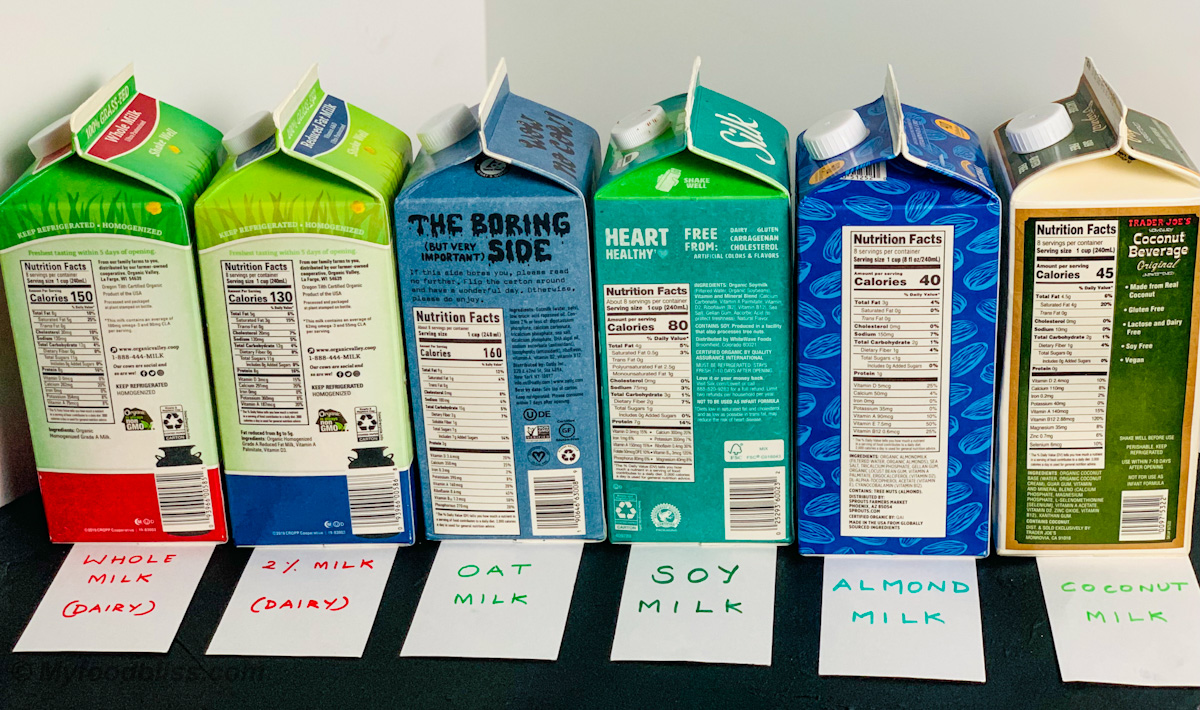Milk Myths, modern science and the ‘Not milk’ choices

Milk has been a part of human history for ages, to a point where we even named our galaxy the ‘milky way’. In the 1800s, due to lack of pasteurization, thousands of children used to die drinking impure milk, and during those times milk was almost thought to be ‘liquid poison’. After pasteurization, with technological advancements and rapid growth of commercial dairy farming and marketing, milk consumption continued to grow across the world.
Then were born the usual perceived and commonly accepted so called facts about milk, such as- ‘ Milk is important for bone strength. You cannot get calcium without milk. You can never say ‘no’ to milk. One glass of milk a day is necessary for kids to grow up.’– and many more.
Science, on the other hand doesn’t agree with a lot of these claims. Thousands of studies were done on the effects of milk on various aspects of human health, with evolving evidence emerging that milk is in fact not as benign and health promoting as it is thought to be.
Dairy protein is linked to higher incidence of cancer, especially prostrate and endometrial cancers due to increased levels of (IGF-1) – insulin-like growth factor production.
Milk intake has been linked to autoimmune diseases, early diabetes onset in children, increased acne, and iron deficiency anemia. A study done in Sweden actually showed an increase of hip fractures with an increase in milk consumption. The purest milk from grass fed cows with no human intervention will still contain hormones, because the source is a lactating mammal. It should be easy to comprehend that in this age, where livestock is raised in inhuman conditions with GMO feeds, hormones, antibiotics, the proportion of unwanted harmful ingredients in milk only continues to increase by the ten-fold. Do we really want all those unwanted hormones in our bodies?
Did you know that milk allergy is the most self reported food allergy across the world? Milk is one of the most consumed products despite the growing intolerance to it through human history. Why are we obsessed with milk, when it is not natural to drink another mammal’s milk?
Dairy milk is abundant with cholesterol, with 24 mg cholesterol in a cup of whole milk. Even skim milk has 5 mg cholesterol. On the other hand, plant based milks do not have cholesterol.
There are multiple kinds of plant based milks available in the market, which is rapidly growing by leaps and bounds for all the right reasons. The science is compelling to make the switch to plant based milk for the health of humanity and the planet Earth.
Let’s review the nutrition content of common plant based milks, which are all cholesterol free and their appropriate uses.
| 1 cup/240 ml | CALORIES | PROTEIN | FATS | CARBS | FIBER | |||
| Almond milk | 30 | 1 g | 2.5 g | 1 g | 0.5 g | |||
| Cashew milk | 28 | 1 g | 2 g | 1.4 g | 0 | |||
| Coconut milk | 45 | 0 g | 4 g | 1 g | 0.3 g | |||
| Oat milk | 130 | 4 g | 2.5 g | 24 g | 2 g | |||
| Pea milk | 80 | 8 g | 4.5 g | 0 g | 0 g | |||
| Rice milk | 120 | 1 g | 2.5 g | 23 g | 0.7 g | |||
| Soy milk | 80 | 7 g | 4 g | 4 g | 1.5 g | |||
| Hemp milk | 130 | 4 g | 3 g | 20 g | 1 g | |||
| 3.25%Whole milk | 149 | 8 g | 8 g | 12 g | 0 | |||
| 2% milk | 124 | 8 g | 4.9 g | 12 g | 0 | |||
| 1% milk | 103 | 8 g | 2.4 g | 12 g | 0 | |||
| Non fat milk | 83 | 8 g | 0.2 g | 12 g | 0 |
| Nutrition notes | Good to use for | Other info | |
| Soy milk | Protein comparable to cow’s milk | Versatile. baking, smoothies, hot beverages | look for organic, non GMO |
| Oat milk | One of the higher carbs, has some fiber and protein | creamy for lattes, hot beverages, | gluten free, nut free, soy free |
| Almond milk | Lowest calories per cup low protein | nutty and most popular at this time. Versatile. | avoid if nut allergy |
| Cashew milk | Similar to almond milk, but slightly creamier | great for sauces | avoid if nut allergy |
| Coconut milk | Has saturated fat, no protein | gives thick rich texture to many recipes, but comes with saturated fat | alternative choice if allergic to nuts, soy |
| Rice milk | Least nutrient, more calories, less protein | thin, light . best for glazes, or to complement rice in recipes | great choice for multiple food allergies |
| Pea milk | No carbs, has protein on par with dairy, and fat too. good source of potassium | unsweetened version takes time to get used to taste texture | Protein rich |
| Hemp milk | High in omega 3s/ has some protein | creamy, but altered texture with heat. good for smoothies, overnight oats | healthy fats |
I tend to use soy, almond and oat milks regularly in various drinks and dishes, depending on the texture and taste I am looking for. You have a menu of milks to chose from. Go, pick your favorite sustainable healthy plant based milk at your nearest grocery store.
References
